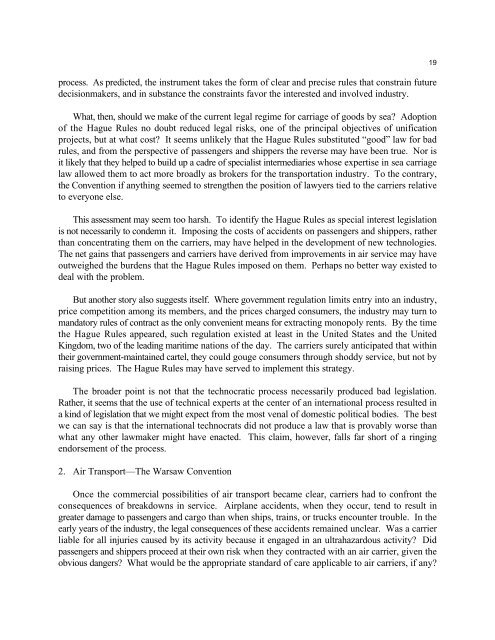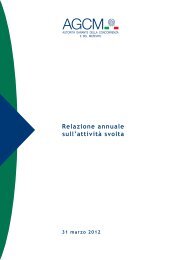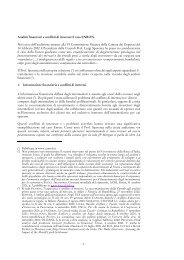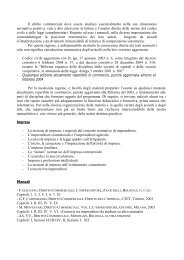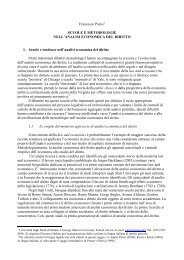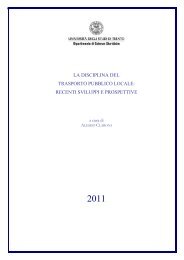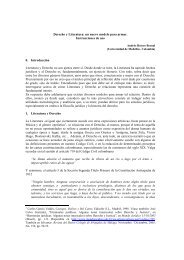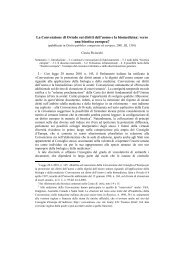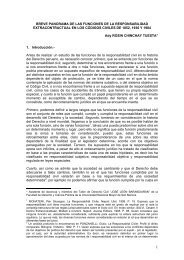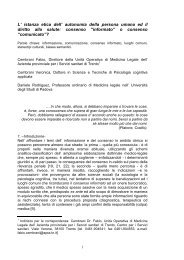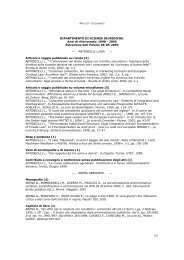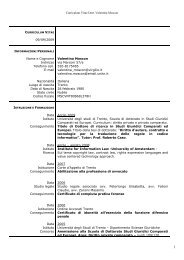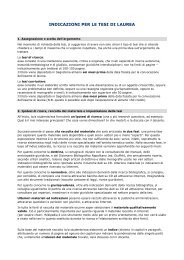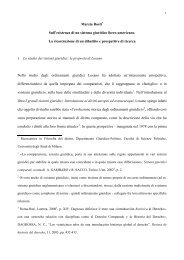The Futility of Unification and Harmonization in International ...
The Futility of Unification and Harmonization in International ...
The Futility of Unification and Harmonization in International ...
You also want an ePaper? Increase the reach of your titles
YUMPU automatically turns print PDFs into web optimized ePapers that Google loves.
process. As predicted, the <strong>in</strong>strument takes the form <strong>of</strong> clear <strong>and</strong> precise rules that constra<strong>in</strong> futuredecisionmakers, <strong>and</strong> <strong>in</strong> substance the constra<strong>in</strong>ts favor the <strong>in</strong>terested <strong>and</strong> <strong>in</strong>volved <strong>in</strong>dustry.What, then, should we make <strong>of</strong> the current legal regime for carriage <strong>of</strong> goods by sea? Adoption<strong>of</strong> the Hague Rules no doubt reduced legal risks, one <strong>of</strong> the pr<strong>in</strong>cipal objectives <strong>of</strong> unificationprojects, but at what cost? It seems unlikely that the Hague Rules substituted “good” law for badrules, <strong>and</strong> from the perspective <strong>of</strong> passengers <strong>and</strong> shippers the reverse may have been true. Nor isit likely that they helped to build up a cadre <strong>of</strong> specialist <strong>in</strong>termediaries whose expertise <strong>in</strong> sea carriagelaw allowed them to act more broadly as brokers for the transportation <strong>in</strong>dustry. To the contrary,the Convention if anyth<strong>in</strong>g seemed to strengthen the position <strong>of</strong> lawyers tied to the carriers relativeto everyone else.This assessment may seem too harsh. To identify the Hague Rules as special <strong>in</strong>terest legislationis not necessarily to condemn it. Impos<strong>in</strong>g the costs <strong>of</strong> accidents on passengers <strong>and</strong> shippers, ratherthan concentrat<strong>in</strong>g them on the carriers, may have helped <strong>in</strong> the development <strong>of</strong> new technologies.<strong>The</strong> net ga<strong>in</strong>s that passengers <strong>and</strong> carriers have derived from improvements <strong>in</strong> air service may haveoutweighed the burdens that the Hague Rules imposed on them. Perhaps no better way existed todeal with the problem.But another story also suggests itself. Where government regulation limits entry <strong>in</strong>to an <strong>in</strong>dustry,price competition among its members, <strong>and</strong> the prices charged consumers, the <strong>in</strong>dustry may turn tom<strong>and</strong>atory rules <strong>of</strong> contract as the only convenient means for extract<strong>in</strong>g monopoly rents. By the timethe Hague Rules appeared, such regulation existed at least <strong>in</strong> the United States <strong>and</strong> the UnitedK<strong>in</strong>gdom, two <strong>of</strong> the lead<strong>in</strong>g maritime nations <strong>of</strong> the day. <strong>The</strong> carriers surely anticipated that with<strong>in</strong>their government-ma<strong>in</strong>ta<strong>in</strong>ed cartel, they could gouge consumers through shoddy service, but not byrais<strong>in</strong>g prices. <strong>The</strong> Hague Rules may have served to implement this strategy.<strong>The</strong> broader po<strong>in</strong>t is not that the technocratic process necessarily produced bad legislation.Rather, it seems that the use <strong>of</strong> technical experts at the center <strong>of</strong> an <strong>in</strong>ternational process resulted <strong>in</strong>a k<strong>in</strong>d <strong>of</strong> legislation that we might expect from the most venal <strong>of</strong> domestic political bodies. <strong>The</strong> bestwe can say is that the <strong>in</strong>ternational technocrats did not produce a law that is provably worse thanwhat any other lawmaker might have enacted. This claim, however, falls far short <strong>of</strong> a r<strong>in</strong>g<strong>in</strong>gendorsement <strong>of</strong> the process.2. Air Transport—<strong>The</strong> Warsaw ConventionOnce the commercial possibilities <strong>of</strong> air transport became clear, carriers had to confront theconsequences <strong>of</strong> breakdowns <strong>in</strong> service. Airplane accidents, when they occur, tend to result <strong>in</strong>greater damage to passengers <strong>and</strong> cargo than when ships, tra<strong>in</strong>s, or trucks encounter trouble. In theearly years <strong>of</strong> the <strong>in</strong>dustry, the legal consequences <strong>of</strong> these accidents rema<strong>in</strong>ed unclear. Was a carrierliable for all <strong>in</strong>juries caused by its activity because it engaged <strong>in</strong> an ultrahazardous activity? Didpassengers <strong>and</strong> shippers proceed at their own risk when they contracted with an air carrier, given theobvious dangers? What would be the appropriate st<strong>and</strong>ard <strong>of</strong> care applicable to air carriers, if any?19


